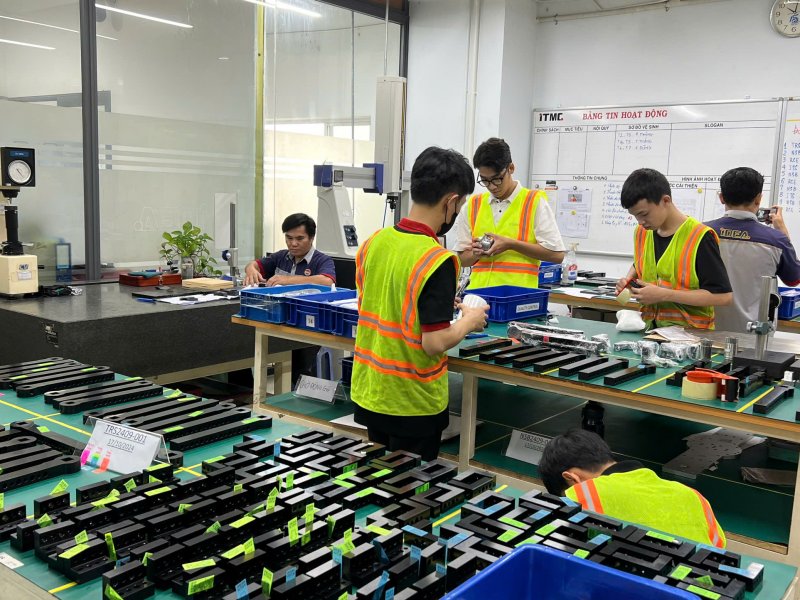As industrial processes advance toward greater efficiency and precision, the integration of industrial sensors, automation, smart control technologies has become essential. In modern manufacturing, sensors serve as the eyes and ears of automated systems, offering real-time data for critical decision-making. Their role in monitoring temperature, pressure, motion, and other variables enables companies to optimize workflows, increase safety, and reduce downtime across production lines.

Why Industrial Sensors Are Crucial in Automation
In automated systems, industrial sensors act as pivotal components connecting the physical world with digital networks. These sensors collect and relay accurate data, allowing smart control logic to adjust operations instantly. This seamless integration ensures predictive maintenance, operational efficiency, and consistent product quality.
Key advantages of deploying industrial sensors include:
- Predictive Maintenance: Identify anomalies before failures occur.
- Process Optimization: Fine-tune production based on live data.
- Energy Efficiency: Reduce consumption by monitoring process variables.
- Improved Safety: Detect hazards in real-time, triggering automated shutdowns if needed.
Smart Control Systems Powered by Sensor Integration
Smart control refers to the use of intelligent algorithms and networked systems that interpret sensor data for automated decisions. When paired with industrial sensors, smart control solutions can dynamically adapt to changing production conditions, thereby maximizing throughput and minimizing waste.
For example, a smart control panel equipped with temperature and vibration sensors can automatically adjust motor speeds, reducing excessive wear and energy usage. This type of automation streamlines production lines without human intervention.
Real-World Applications in Industrial Automation
Industries ranging from automotive and electronics to food processing and logistics are leveraging sensor-driven automation. Let’s examine a few impactful applications:
- Assembly Lines: Proximity and vision sensors ensure components are placed precisely.
- Packaging: Load and weight sensors regulate filling systems in real time.
- Warehouse Automation: Motion sensors and RFID track inventory movement efficiency.
- Quality Control: Optical sensors detect surface defects and inconsistencies on production lines.
Choosing the Right Sensors for Your Automated System
Not all industrial sensors are suitable for every application. It’s crucial to assess requirements such as environment, accuracy, range, and response time. Key sensor types used in automated systems include:
- Proximity Sensors: Detect object presence without physical contact.
- Photoelectric Sensors: Use light for object detection, ideal for conveyor systems.
- Temperature Sensors: Monitor thermal conditions to prevent overheating.
- Pressure Sensors: Measure fluid and gas dynamics in process controls.
Partnering with experienced automation professionals ensures you select sensors that meet your system’s technical demands and compliance standards. Reputable resources like Che Tao May IDEA offer specialized support in sensor integration.
Overcoming Integration Challenges
Integrating sensors into legacy automation systems can be complex, especially when updating control software or connecting to cloud-based platforms. Data compatibility, signal interference, and calibration are common hurdles. To overcome these, many manufacturers adopt modular control units and standardized communication protocols like IO-Link or Ethernet/IP.
Companies such as IDEA Group Vietnam provide expert consultation and end-to-end integration services to streamline sensor deployment and reduce operational risk.
Future Trends in Sensor-Driven Automation
As smart manufacturing moves toward Industry 4.0, the role of industrial sensors will only grow. Key trends include:
- Miniaturization: Smaller sensors enable compact system designs.
- Wireless Connectivity: IoT-enabled sensors reduce wiring complexity.
- AI Integration: Advanced analytics drive self-optimizing systems.
- Cloud-Based Monitoring: Remote access to sensor data increases transparency and responsiveness.
Forward-thinking factories are already adopting these technologies, making industrial sensors, automation, smart control central to future-proofing operations.
Partner with IDEA for Smart Automation Solutions
Whether you’re developing a new production line or retrofitting legacy equipment, integrating industrial sensors, automation, smart control systems enhances productivity, ensures safety, and gives your operation a competitive edge. At IDEA Technology Corporation, we specialize in designing and implementing intelligent machine systems tailored to your industry needs.
Let IDEA be your trusted partner in advancing smart industrial manufacturing in Vietnam and beyond.



Leave a Reply